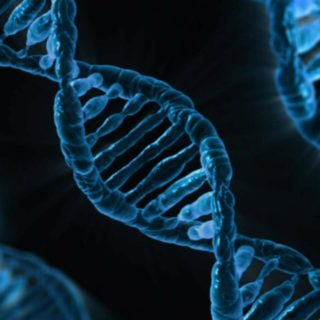
I.A in the service of medecine
Medicine, until today, was a field dedicated to specialists only. Now, it leaves more and more room for Artificial Intelligence (AI). This appears at the right time, in a context where doctors are overwhelmed by the amount of information related to scientific research and medical data of their patients. The human brain cannot store as much information, whereas the machine has this capacity.

AI allows the personalization of medicine for each individual based on personal data, which, when analyzed, will be able to report on his health and potentially predict disease based on predispositions.
Before, treatments were designed for the “average patient“, but today AI makes it possible to customize medicine: each patient will be able to benefit from a treatment adapted to his pathology and sensitivities. This faculty is a turning point in the world of health care because “by putting science at the service of each person’s unique characteristics, we are improving health care and transforming the physician in unprecedented ways.” Peter LIU, Scientific Director of Research.
With this new precision medicine, researchers and physicians can identify the genetic variants that predispose individuals to cardiovascular and metabolic diseases.
Predictive medicine also makes it possible to reveal the level of sensitivity of each human to a molecule, according to each genome. This will make it possible to predict the potential side effects of a treatment, for example. This discovery has enabled pharmacogenetics to avoid prescribing non-effective and sometimes lethal drugs. This precision medicine, which involves recommending personalized treatments, is a considerable advance for the health and comfort of patients.
Predictive medicine uses biological markers to prevent, detect and treat diseases. Its foundation is based on genetic testing, where the human genome is read and analyzed. Indeed, at the University of San Francisco, a team of researchers discovered that AI has the ability to detect Alzheimer’s disease 6 years before doctors. This discovery is not only good news for the patient in question, but for the whole humanity. Alzheimer’s disease affects 35.6 million people per year according to the Alzheimer Research Foundation, with 7.7 million new cases per year. The number doubles every 20 years.
Being able to pre-diagnose a disease allows its better management, since currently treatments for the disease only slow down or stop its progression. In another medical breakthrough, again in the United States, the FDA (Food and Drug Administration) has authorized an AI to diagnose Diabetic Retinopathy, without a doctor’s supervision.
The AI can also detect certain types of melanomas more effectively than a dermatologist. This technique requires large learning samples, up to 50,000 images for melanomas and 128,000 images for retinopathy screening. Thus the algorithm will be trained to detect the different signs of the diseases in order to be able to recognize any abnormality on new images.
In this sense, AI will truly be a prerequisite for the physicians of tomorrow, they will have to continue to practice their professions while mastering the new technologies that will be ubiquitous in the health sector.There is a lot of reluctance towards technology in the medical field, and this concerning the future of the physician as a human being. However we must not forget that the AI is not there to replace the doctor, because the latter has capabilities that the machine does not have. The challenge today will be to organize medicine by merging doctors and AI, because both go in pairs. AI is not an adversary of medicine but a solution that would tend towards preventive and personalized medicine, more reliable, efficient and carrying greater hopes of health progress.